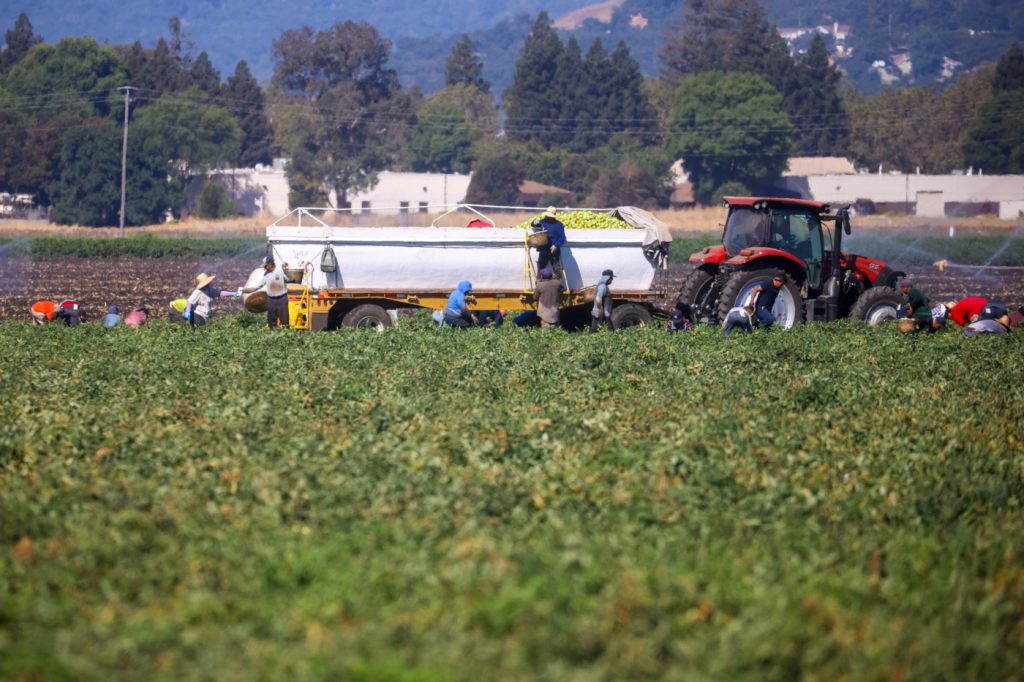Governor Gavin Newsom has vetoed a bill that sought to protect farmworkers from extreme heat by retooling the state’s worker’s comp system, arguing that it was ineffective while advocates called it a blow to the movement to protect farmworkers who are working and getting sick in extreme heat.
“It’s disappointing,” said State Sen. Dave Cortese, who sponsored the bill, noting that he still hears of farmworkers getting injured and even dying in the fields from heat. “We thought because this is such a compelling issue that he’d tip the scales in favor of getting this done.”
The bill, SB 1299, was meant to help farmworkers receive workers’ compensation if they were injured, fell ill or died due to a heat-related incident. If an employer was not in compliance with heat safety law, any heat-related injury would be assumed to be work-related, though employers could dispute that presumption.
Advocates for the bill hoped it would have worked as a preventative. In theory, employers who complied with heat laws would benefit by avoiding workers’ compensation claims, which can cost employers money by driving up insurance premiums, argued Cortese.
In a letter to the Senate, however, Newsom argued that other programs were already being established to protect farmworkers in extreme heat, noting that existing bill, AB 1643, established committees looking at underreporting of heat illness and methods to minimize the effect of heat on workers, and the recently signed SB 1105 allows farmworkers to use sick leave to avoid heat during an emergency.
He also pointed out that the California Division of Occupational Safety and Health (Cal/OSHA) is building a new Agricultural Unit meant to specialize in worker protections for farmworkers.
Bryan Little, employment policy director for the California Farm Bureau, agreed with the governor’s conclusion. “We’re glad the governor vetoed it,” said Little, arguing that the workers comp did not have the expertise to enforce heat-related issues. “It’s trying to use the wrong tool for the job. Cal/OSHA is the right tool for the job and Cal/OSHA is stepping up to the plate.”
Cortese, however, says those measures do not do enough to save farmworker lives, calling Cal/OSHA “currently a failed system.” Moving forward, he says that he will be “doubling down on Cal/OSHA” to get more staffing — the agency has a 37% vacancy rate among enforcement positions according to recent numbers — and look toward another legislative solution that incentivizes protecting farmworkers.
“You keep pressing ahead,” said Cortese. “We’ll come back with something. I’ve got to come back with something.”


